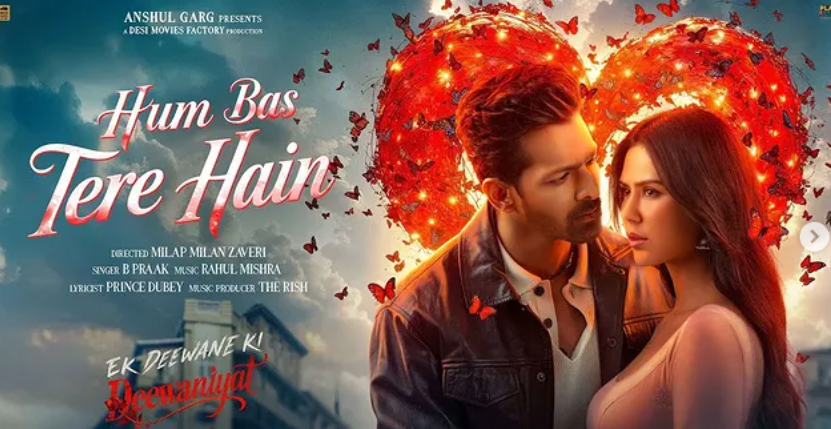
Ek Deewane Ki Deewaniyat Review: Harshvardhan Rane’s Outdated Love Story Glorifies Obsession
Back in 2016, Harshvardhan Rane starred in Sanam Teri Kasam—a tragic love story that failed at the box office but later gained popularity upon re-release in 2025. Many demanded a sequel, but instead, we got Ek Deewane Ki Deewaniyat, a film that feels like it was shot a decade ago and released today by mistake.
Directed by Milap Zaveri, this so-called romantic drama feels painfully outdated and problematic. It romanticizes harassment, glorifies entitlement, and crosses every boundary of consent. Calling it cringe would be an understatement.
Plot: A One-Line Story of Toxic Obsession
The story is painfully simple. A rich young man falls in love at first sight with a film actress. She, of course, doesn’t reciprocate. What follows is not love—it’s harassment. The man stalks and emotionally manipulates her and her family in an attempt to make her say yes.
The film packs every outdated trope imaginable—melodramatic crying scenes, slow-motion walks, remixed songs, and poetic dialogues that try to sound deep but fall flat.
A Man-Child’s Love Story
This is the story of a man-child who cannot handle rejection. When asked on TV whether he’s ever misbehaved, he proudly says, “Did I ever touch her inappropriately?”
But this same man gets her film taken down from theatres, stops her from getting new projects, terrorizes her family, and even shoots himself to gain sympathy.
The film tries to justify his behavior by blaming his traumatic childhood—an absent mother and a toxic father. But trauma doesn’t justify manipulation or abuse.

A Mix of Every Problematic Bollywood Trope
Ek Deewane Ki Deewaniyat borrows every controversial element from Kabir Singh, Animal, Raanjhanaa, and Tere Naam—films that were already criticized for glorifying toxic love. But instead of learning from past mistakes, Milap Zaveri doubles down.
Harshvardhan Rane is cast again as the intense lover—a man whose love story ends in tragedy. The problem? The film mistakes intensity for abuse and passion for possession.
Pre-Interval Twist: A Shocking Scene You Wish Didn’t Exist
By the first half, the female lead (played by Sonam Bajwa) is completely exhausted and desperate for freedom. What she does next is so awkward and unnecessary that you just want the scene to end. It’s one of those moments you wish never existed in Indian cinema.
A Sudden Redemption That Feels Forced
Before the film ends, the male lead suddenly realizes his mistakes. The same man who couldn’t hear “no” for two hours now delivers lectures about consent and respecting women. The transformation feels fake and rushed, as if added to avoid backlash.
Final Verdict: A Regressive and Irresponsible Film
At a time when real-world crimes against women dominate headlines, releasing a film like Ek Deewane Ki Deewaniyat feels socially tone-deaf. The movie neither entertains nor takes moral responsibility.
The only mildly interesting thing here? It’s directed by Milap Zaveri, known for Satyameva Jayate 2 and soon to direct Masti 4. That should give you an idea of what to expect.
Sonam Bajwa plays the female lead in a film within the film called Dilbara, directed by fictional names—Ritesh Abraham and John Deshmukh. Ironically, you can’t help but feel that even they would’ve made a better movie than Milap Zaveri.
Ek Deewane Ki Deewaniyat Review Summary
Director: Milap Zaveri
Cast: Harshvardhan Rane, Sonam Bajwa, Shad Randhawa, Sachin Khedekar
Genre: Romantic Drama
Rating: ⭐ 1.5/5
Verdict: A regressive, outdated love story that confuses obsession with passion.



